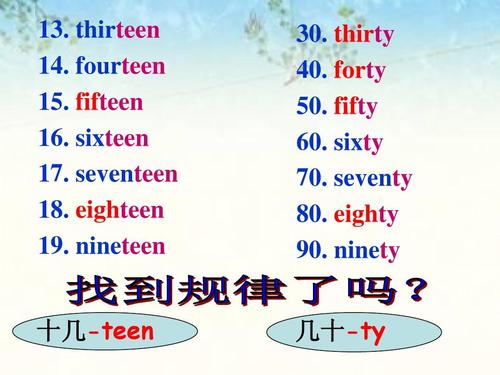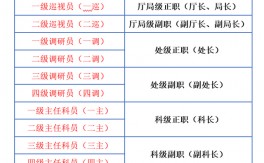situation可數(shù)嗎
"Situation" 這個(gè)詞在英語中通常是不可數(shù)的。它指的是一個(gè)特定的環(huán)境、狀況或情境。例如:
- The situation is tense. (情況很緊張。)
- What's the situation at the moment? (目前情況如何?)
在某些情況下,"situation" 可以被用作可數(shù)名詞,尤其是在指代不同的或多個(gè)情境時(shí)。例如:
- There are several situations that need to be dealt with. (有幾種情況需要處理。)
- Each situation has its own unique challenges. (每種情況都有其獨(dú)特的挑戰(zhàn)。)
總的來說,雖然 "situation" 通常被視為不可數(shù)名詞,但在特定的語境下,它也可以被當(dāng)作可數(shù)名詞使用。

situation單復(fù)數(shù)的用法及例句
"Situation"這個(gè)詞在英語中既可以用作單數(shù)形式,也可以用作復(fù)數(shù)形式,具體取決于上下文。以下是一些例句和解釋:
單數(shù)形式 (singular)
1. 用法: 當(dāng)描述一個(gè)特定的情境或狀態(tài)時(shí),使用單數(shù)形式。
2. 例句:
- The current situation in the country is unstable.
(該國當(dāng)前的局勢(shì)不穩(wěn)定。)
- She handled the situation with great skill.
(她非常有技巧地處理了這個(gè)情況。)
復(fù)數(shù)形式 (plural)
1. 用法: 當(dāng)描述多個(gè)不同的情境或狀態(tài)時(shí),使用復(fù)數(shù)形式。
2. 例句:
- There are many different situations where this rule applies.
(有許多不同的情況適用于這個(gè)規(guī)則。)
- They were able to adapt to the various situations they encountered.
(他們能夠適應(yīng)他們遇到的各種情況。)
一些額外的說明:
- "Situation"這個(gè)詞的單復(fù)數(shù)形式通常取決于它所指代的具體內(nèi)容的數(shù)量。如果只有一個(gè)情境,使用單數(shù);如果有多個(gè)不同的情境,使用復(fù)數(shù)。
- 在某些情況下,即使只有一個(gè)情境,也可能使用復(fù)數(shù)形式,尤其是當(dāng)這個(gè)情境包含多個(gè)方面或部分時(shí)。例如:"The situations in the Middle East are complex."(中東的情況很復(fù)雜。)這里雖然只有一個(gè)地區(qū),但是提到了多個(gè)復(fù)雜的情況。
- 在口語中,人們有時(shí)會(huì)根據(jù)習(xí)慣或強(qiáng)調(diào)的需要,靈活地使用單數(shù)或復(fù)數(shù)形式。
記住,語言的使用往往依賴于上下文和語境,因此理解何時(shí)使用單數(shù)或復(fù)數(shù)形式,最重要的是考慮句子想要傳達(dá)的具體信息。
condition在什么情況下加s
在英語中,單詞 "condition" 表示“條件”或“狀況”。它在以下情況下可能會(huì)加 "s" 變?yōu)閺?fù)數(shù)形式 "conditions":
1. 表示多個(gè)條件或狀況:當(dāng)談?wù)摰牟皇菃我坏臈l件或狀況,而是多個(gè)不同的條件或狀況時(shí),使用復(fù)數(shù)形式 "conditions"。
例如:
- The conditions of the contract must be met before the deal can proceed.
- The weather conditions vary greatly throughout the year.
2. 作為可數(shù)名詞:當(dāng) "condition" 作為可數(shù)名詞使用時(shí),如果不止一個(gè),就會(huì)加 "s"。
例如:
- There are several conditions that need to be considered.
3. 表示特定的一組條件:有時(shí),即使只有一個(gè)條件集,如果它包含多個(gè)方面或細(xì)節(jié),也可能使用復(fù)數(shù)形式來強(qiáng)調(diào)其復(fù)雜性。
例如:
- The conditions of the loan include a high interest rate and a short repayment period.
4. 語法要求:根據(jù)句子的語法結(jié)構(gòu),可能需要將 "condition" 變?yōu)閺?fù)數(shù)。
例如:
- Conditions for the experiment were carefully controlled.
5. 習(xí)慣用法:有些情況下,即使只有一個(gè)條件,也可能習(xí)慣性地使用復(fù)數(shù)形式,特別是在某些固定短語或表達(dá)中。
例如:
- Under certain conditions, the reaction will not proceed.
在大多數(shù)情況下,是否使用復(fù)數(shù)形式 "conditions" 取決于上下文和句子的具體含義。

 微信掃一掃打賞
微信掃一掃打賞











